NRL
What Mickey Rourke taught me
I was told I should make a movie about my life. A wild child from a council estate shocked straight by the courts, I turned my life around, proving several coaches wrong by making it big in Super League and in the NRL for the Melbourne Storm.
A chance meeting, and lasting friendship, with Hollywood star Mickey Rourke led to a new career as an actor and into my latest adventure, as the creator of rugby league graphic novels that turn real-life rugby league stars like Josh Addo-Carr, Tyson Frizell, Kalyn Ponga, DCE and Andrew Fifita into superheroes.
The movie is coming. Until then, my origin story is there in David King, the main character of Rugby Blood, the first-ever rugby league comic book, and the follow-up Shot Clock.

I WENT TO COURT OVER 40 TIMES
I’m from a council estate in the town of Dewsbury in an area called Dewsbury Moor. It’s a famous place for rugby league, home of the Burgess brothers, but also a rough place, and I was one of five kids brought up by my mum, Kathrine Fallas.
My dad left with another woman before I was born. I didn’t know him properly but he came to the house sporadically when I was 9-12, when I stepped out of line and was being a little shit.
I started rugby at six, but from 11 to 14 I was always in a lot of trouble, hanging around older kids from the council estate – hardly anyone of us with a father figure.
I was fighting all the time; wild and full of energy. I’d go to rugby on the weekend, score three or four tries and then I’d go down where I lived with my friends, nicking toys from Woolworths, getting in fights, struggling with school.
I went to court over 40 times. I know that sounds bizarre.
When I was 14, a kid knocked on my door and said, ‘I need your help to get some speakers’. I walked into a house, and being naïve, I walked out with some speakers. It was burglary and we got caught by police.
I felt trapped. There was a heroin epidemic, there were a lot of people around us on drugs. I saw a lot of stuff I shouldn’t have seen as a young kid. I’ve learned from people’s fuck-ups. My brother was an alcoholic, my sister was an addict and I thought, ‘I don’t want to be like that’.

My mum fought my corner when I was a kid and that support has never wavered.
But sometimes you have to change the environment.
Now I feel it was a phase. I was probably looking for attention. Thinking about that and what I’ve done with the rest of my life is chalk and cheese.
The kid I used to go around with, we went to court and he ended up being sent to jail.
I felt trapped. There was a heroin epidemic, there were a lot of people around us on drugs. I saw a lot of stuff I shouldn’t have seen as a young kid. I’ve learned from people’s fuck-ups.
I was younger, so I got put on probation for two years. It was just before my 15th birthday and I knew I was lucky when I walked out of court. It was like a spiritual awakening. It’s like I grew up in that second and my whole life changed. I thought I need to give rugby league my best shot now.
In life, you change through one of two things. Pain or desperation. Mine was desperation.
No one saw me being a professional rugby league player, let alone starring in Hollywood movies or creating a graphic novel.
Coming out of court that day I knew I needed to sacrifice that life to become a Super League player.

MEETING MICKEY ROURKE
In 2009 I was at Huddersfield Giants, playing under Nathan Brown. He was a great coach for me and shook us up, making us a top two team.
We got to the Challenge Cup final against Warrington, had a try wrongly disallowed and they got the win.
Afterwards we scored an invite to a famous bar in Covent Garden, and I was standing at the bar with some teammates when Mickey Rourke walked in, wearing a waistcoat and in good shape.
I’d just seen him in The Wrestler, which was a big hit for him. The guys with me were a bit younger and didn’t recognise him but I was a fan from movies like 9 ½ Weeks and a few others. He was a massive star in the 1980s and 1990s before he fell off the perch, and The Wrestler was a big return to form.
I introduced myself to Mickey and he looked me up and down. ‘What are you man, a gangster? An athlete?’
We were in our grey Challenge Cup suits with black ties so we may have looked like gangsters. I told him I was a league player and we’d played in the final. He told me he watched the game on TV, and said, ‘wow, I love rugby.’
We stayed together most of the night. We went to another bar and The Wrestler started arm-wrestling some of the players.
He whooped one of them and then arm-wrestled a big guy called Darrell Griffin – he’s 19-stone, six-five. Darrell basically tore Mickey’s bicep off his bone.
Because he was so out of his mind on tequila and whatever else, the pain wasn’t as bad right then as it might have been. But you could see it starting to swell straightaway.
If you look at it now, he wears a band around his arm. He went to see Wladimir Klitschko’s doctor to try and fix it but it didn’t work.
I introduced myself to Mickey and he looked me up and down. ‘What are you man, a gangster? An athlete?’
During that night I was speaking to Mickey and he was looking at me. Then, no word of a lie, he started crying.
I didn’t know if I’d done something wrong. Mickey just whispered to his bodyguard Derek, who told me, ‘it’s okay Keith, you look like his brother’.
Mickey looked at me and then pointed at the skies. His brother, god bless him, had passed away.
He gave me his phone number and two weeks later invited me to the GQ Awards. This was mid-week so I had to bunk off a training session. But who wouldn’t bunk off to get looked after by a movie star? He put me up in a 400-pound-a-night hotel for a couple of nights. The guy looked after me.
I rocked up to the Royal Opera House in Covent Garden and Mickey was awarded the International Man of the Year, presented by Jason Statham.
I was standing at the top of the steps when the awards finished and all these famous people were coming up this escalator – Guy Ritchie, David Haye the boxer, Eva Mendes, one of the Jackson brothers. I’m thinking ‘what the hell?’.
Mickey comes up and I give him a Huddersfield Giants shirt I’d signed for him. He gave me a big cuddle, put the shirt around his shoulders.
Then Jason Statham comes up for a chat and I’m really made up, being a big fan. He says, ‘how you going Keith? Mickey told me all about you.’
Then we had a fantastic night, me, Mickey and Jason Statham. I asked Jason why he never smiles and he said, ‘Keith, cos it’d spoil me image, mate.’
It was so bizarre being in the company of these movie stars. I became friends with Mickey and every time he came over I’d go down to London for bites to eat with him.
‘THE STORM? WHO’S THE STORM?’
It was tough breaking into the professional game. I had three knockbacks before my chance finally came with Wakefield Trinity. The third club I trialled for was Leeds Rhinos and I’ll never forget the coach, Dean Bell, taking me aside one day and saying ‘Keith, I don’t think you’re a Super League player.’ Later I played against them, won the man of the match award and he told me, ‘Keith, you proved me wrong’. I said, ‘I know I did’.
I was capped by Wales in my second year – 2001 – and then got recruited by Melbourne Storm. I’m still the youngest-ever British forward to play in the NRL. I remember being told they were interested and my reaction was, ‘the Storm, who’s the Storm?’ They were just getting started really.
Mark Murray was the coach in my first season there, and I lived with Cam Smith for a while. Barbara was there with us, cooking for us all. He’s still the same Cameron now as he was then.
That move to Melbourne made me. Jumping on a plane at 19 was a very bold move but I had to learn to be independent. I’ve always prided myself on my fitness but that was another level, especially when Craig Bellamy came in in my second year.
Twice a week in pre-season we would do these park runs in 42 degree heat, 4x2km, where you went around in about nine minutes, had five minutes rest, then went again.
Bellamy would hide behind trees. I remember one day I was flying and Antonio Kaufusi – who was 115kg and struggling to get up to fitness – was laid on his arse with his legs in the air when Bellamy popped out from behind a tree yelling, ‘get fucking moving! Get off your arse!’
I’d heard about him being extreme about fitness and he brought that bulletproof mindset. He gets the best out of each player, is great at the one percenters, all the little stuff fans don’t notice but that win grand finals.

HE TOLD ME STAY THE COURSE
I returned home with St Helens for a few seasons, a brief stop at Castleford and then to Huddersfield, where I played for seven years before a devastating court case with them.
I fought them and eventually won my unfair dismissal case and 167,000 pounds. It was a tough time in my life.
Mickey asked me to come out to the US when I got sacked and he let me stay with him in Hollywood for two weeks.
I spoke to him a lot about life and everything in general. He told me ‘stay the course’. I didn’t really understand what he was saying. But I did stay the course.
What happened at Huddersfield broke my heart. I lost my licence, I went from having big money and four years left on a deal to zero money and being in the wilderness.
I had to move back to Castleford for a pay cut. I’d play week in week out at a high level with a court case hanging over me, no driving licence and unable to see my kids. It was a tough time and when you’re a football player any extra pressure outside isn’t needed.
You hear a lot now about the mental health challenges players go through but then no one reached out to me. That can happen to some players, they get forgotten about and thrown under the bus.
But I was a driven guy and had come through a lot of adversity as a young kid and worked hard to where I’ve come.
I’ve always been a fighter and I won the case. Two weeks later, Mickey called me and asked if I wanted to be in a movie.
More about: Andrew Fifita | Cameron Smith | Craig Bellamy | England | England rugby league | Josh Addo-Carr | Kalyn Ponga | Melbourne Storm | Nathan Brown | Super League
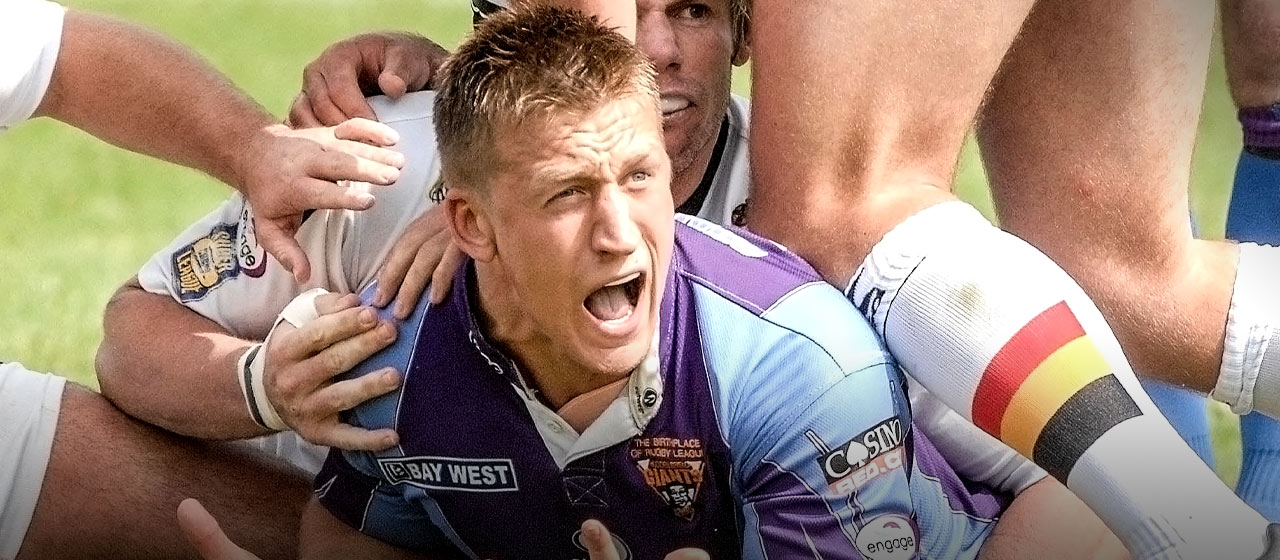
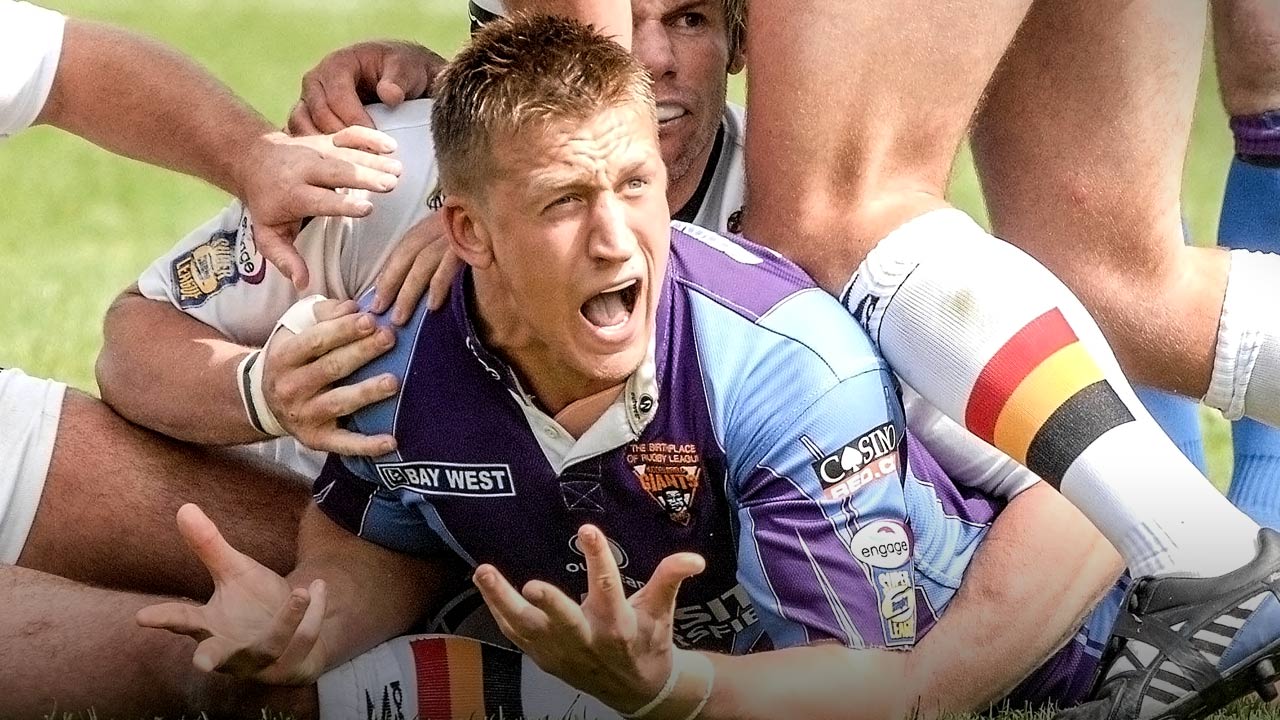

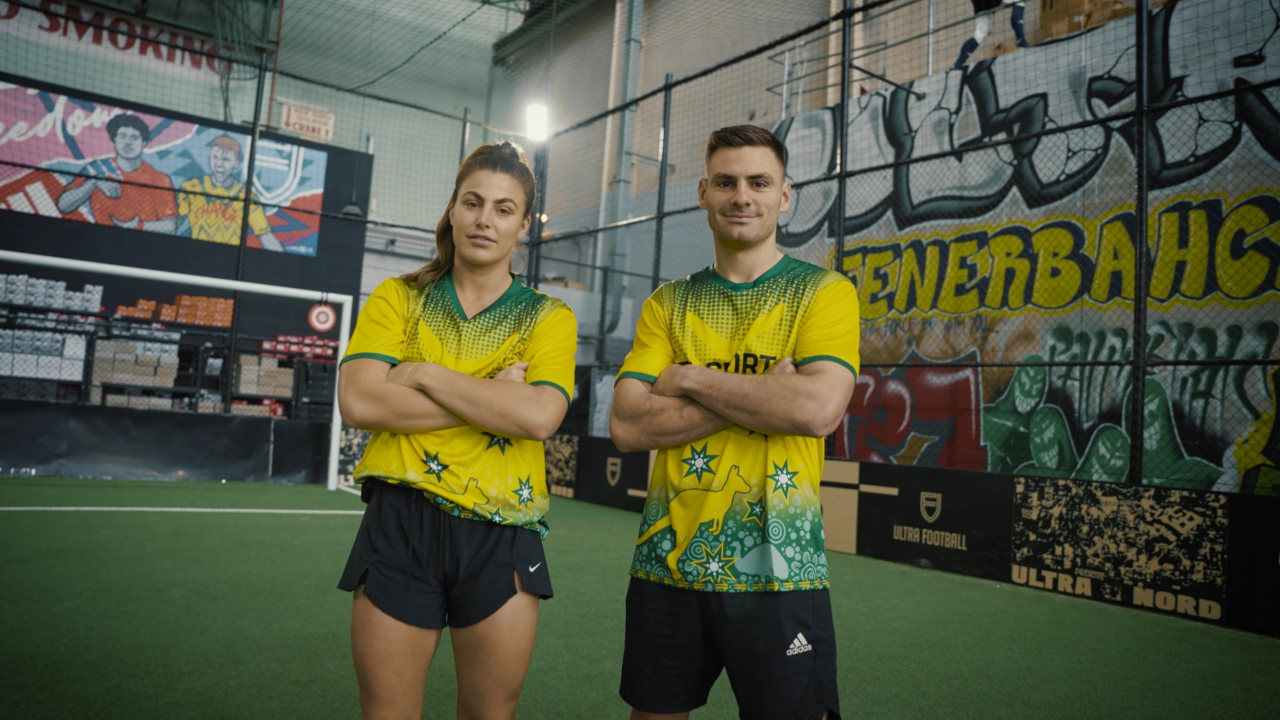
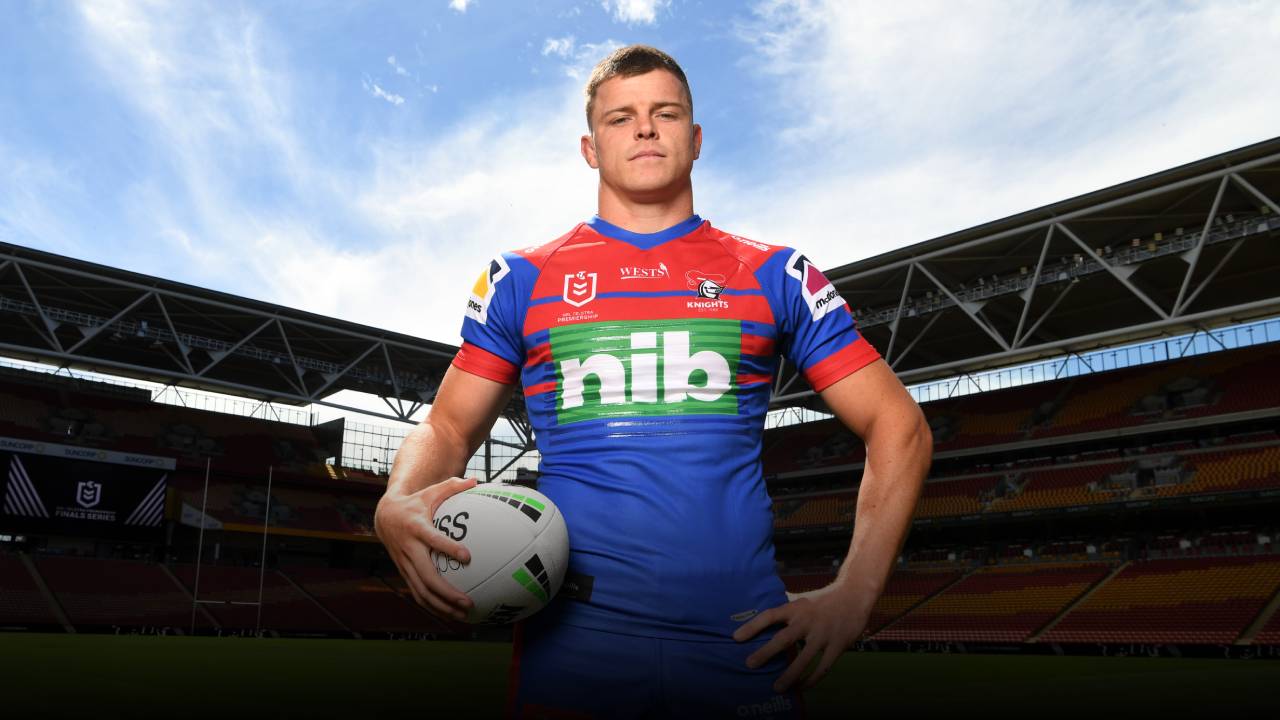
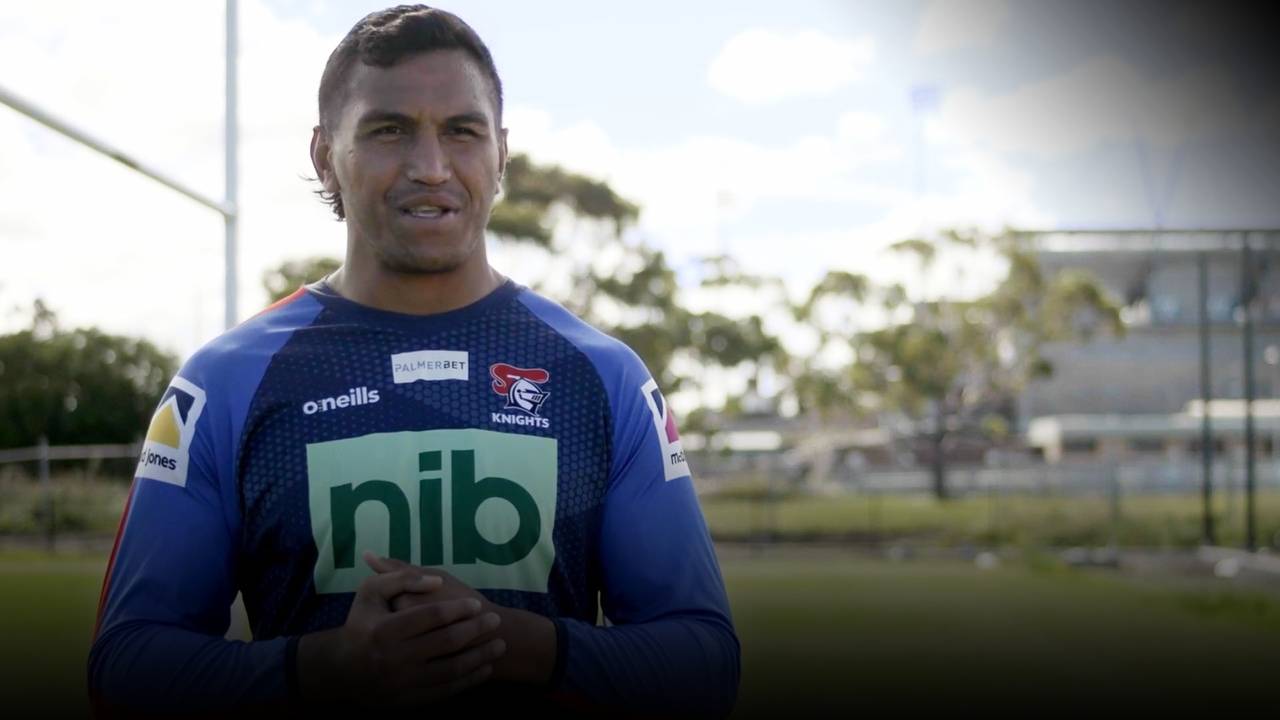
 Load More
Load More